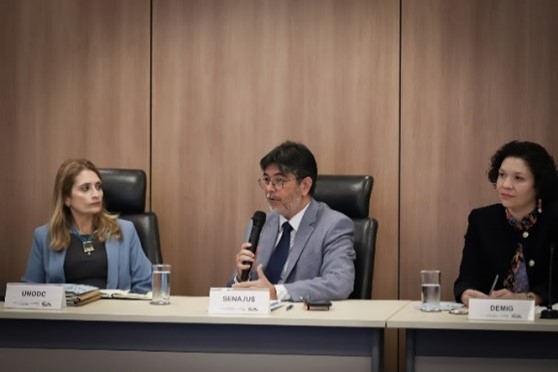
With the support of the United Nations Office on Drugs and Crime (UNODC) in Brazil, the Ministry of Justice and Public Security (MJSP) held the first round table to draw up the 4th National Plan to Combat Trafficking in Persons between 19 and 21 March in Brasília, as part of Brazil's accession to the United Nations Convention against Transnational Organised Crime and the Trafficking in Persons Protocol (Palermo Protocol), of which UNODC is the guardian.
Throughout the three-day programme, the authorities present—representing seven Ministries, the United Nations, and institutions such as the Federal Police, the Federal Public Prosecutor’s Office and the Labor Prosecutor’s Office—discussed priority actions in five thematic areas: structuring public policy; coordination and partnerships; prevention; protection and assistance for victims; and repression.
Discussions and referrals – During the first-round table, the debate focused on strategies to bring the agenda of combating human trafficking in its various forms of exploitation closer to other agendas, especially the fight against forced labour and policies in support of people in situations of vulnerability. In addition, participants emphasized the importance of improving the regulatory framework on human trafficking in the criminal, civil and administrative spheres. The creation of a fund to combat human trafficking also raised different opinions regarding its scope and operation.
In the area of protection, participants discussed the importance of encouraging the involvement of human trafficking victims in different activities in which public policies to counter trafficking in persons are debated.
Technical support - With the support of the Government of Sweden and the Office to Monitor and Combat Trafficking in Persons (JTIP) of the US Department of State, UNODC TiP team in Brazil has provided technical assistance to MJSP in various activities, including the preparation of the 4th Plan, the National Report on Trafficking in Persons, the Study on victims of human trafficking exploited to transport drugs, and in addressing forced labour in the small-scale gold mining sector.